Finalist, 2019 International Book Awards (Fiction – Literary)
Lovers Fall Back to Earth is a human drama about three sisters, the men they marry, and the repercussions in their lives when disaster strikes. The sisters fall in love while they are at university and the three couples become part of a group of students who are shaped by the ideas of the sixties and who meet to discuss ideas of liberty, politics, and environmentalism. Young and idealistic revolutionaries, they believe they can change the world, as they hold forth in the smoking room where they spout philosophies about personal freedom. They form strong relationships and marry but, inevitably, each couple chooses a different life style. Amelia and Reuben live as hippies, Esther and George choose a middle-class upward-mobility life, Helen and Benjamin are the academics. When an unexpected tragedy shatters the lives of all three couples, they are forced to build their lives anew, questioning the idealism of their youth as they learn to deal with the impact of their actions on those they love.
“Cecelia Frey knows the flower children. Then, and now. Where did they go with their love beads and messages of universal belonging and peace and love? Twenty years have passed since three sisters and the three men with whom their lives would mesh have moved on from the campus Cave. So long ago that they smoked and drinked and philosophized in that campus club so frequently that a table was named after them. They were the Philosophers Circle.
Cecelia Frey is adept at delivering both the spoken and the unspoken memories of her characters; the melancholy, the sadness, the bitterness over having arrived where they are now—a place where they have “failed to make any coherent sense of their lives.” Known for her skill in delivering dialogue, the conversations that run a gamut of emotion ring with authenticity. These well-drawn characters evoke compassion, frustration, outrage, and sorrow. As Frey takes us back and forth in their lives with skilful storytelling, it is clear that she feels the same affection and apprehension over the fates that befall them. This is a compelling tale of entangled lives and human foible.”
—Betty Jane Hegerat, author of The Boy
“Lovers Fall Back to Earth gives the reader rare insight into how grief, guilt, and trauma impact a network of siblings and partners. The effect on each character is often unexpected but also entirely believable. Cecilia Frey’s beautiful novel is, in turn, painful, entertaining, and tender.”
—Paul Butler, author of The Widow’s Fire
“From the very first paragraph through to the novel’s close, author Cecelia Frey will draw you in to this story of three close, but temperamentally different, sisters, their divergent paths and the impact of a tragedy. Themes of love and marriage, aspirations met and unmet, self-realization, loss, infidelity, forgiveness and redemption, are not new. But it is Frey’s exploration of character that breathes new life into those narratives. With clarity, surety and a straight-forward style, she drives the story-line quickly forward, while, in seeming counterpoint, skilfully allowing herself the slower pace, the time — and the reader the luxury — to savour the qualities unique to each character. She, and we, relish the details that give them depth and roundness; reveal their goodness as well as their weaknesses, inconsistencies, reflections, self-doubts; in short, what makes them human, their relationships and struggles believable. We recognize ourselves. It is that gift of characterization that makes this novel an outstanding, compelling read.”
—Rhoda Rabinowitz Green, author of Aspects of Nature and Moon Over Mandalay
Helena
Helena was suffocating. Water filled her mouth, her nostrils, all the cavities of her head. Her lungs were about to burst. Then she felt herself rising to the surface, face up. If she could only hang on a moment longer, one more moment. She broke the surface. She gulped, taking in great draughts of air. She knew that she must move her legs and arms. She knew that she must swim. It was the only way she could save herself. But when she tried to move, an arm, a leg, something restricted her movements. And the air was not right. It was not cold, fresh, salty. It was warm, too warm.
She opened her eyes. A black wall slapped her in the face. But it was not water. She was dry. She was warm. She was between dry, warm flannel sheets. It was only a dream. A nightmare. Amanda was not dead. She had not killed her sister. Thank God. She made a vow right then and there to be nicer to Amanda and to visit her more often.
But she was in a strange place. Where? She hoped that she was not at some man’s apartment, some fellow whom she could not remember. Had she drunk a lot last night? She couldn’t remember. But she sometimes did. One thing she did know, one thing in the here and now, was that she was too warm. No wonder she had dreamed that she was suffocating. Her hands could feel layers of blankets, a quilt. The sheets were cloying. She brought her left hand out from under the sheet and held the back of it close to her face. It was too dark to see. She hoisted herself up onto her elbows and looked around. Ahhh, there we go, red, on the night table. 4:10. She thought a moment: morning or afternoon? Winter or summer? If summer, it would be lighter. Winter then. Or possibly spring. Or fall. Early spring. Late fall. She slid herself across the sheets and felt around on the night table for a lamp. A switch. Good. She clicked the switch. The light came on in a subdued glow. She looked around her. Drapes hung in folds across the window; a dresser sat across the end wall and another stood to the right of the bed. She lay back down, her head squarely on the pillow and closed her eyes. She breathed in a remembered smell of scented bed sheets, lemon furniture polish. She knew where she was. Esther’s. In the guest bedroom. She had surfaced into the house of her sister.
From somewhere came the sound of water, a sudden gush, a toilet flushing. Someone was up and using the toilet. She, too, should get up and go to the bathroom. But it seemed too big a thing to do. She heard water running from a tap, then the tap turned off. Was someone getting a drink? Getting an aspirin, a sleeping pill, a shot of whiskey? Whatever it took to get them through the night.
She must have dozed off. Now she heard different sounds, the clinking of dishes, the shutting of a cupboard door, again, water from a tap. Someone was in the kitchen. She turned her head: 5:20.
Her mind was alert now. She would not be able to soothe it back into a comatose state. She sat up, threw back the covers and swung herself onto the edge of the bed. Her head spun. She closed her eyes. Something hurt, a pain came from some part of her body but she could not identify the spot. She felt bruised all over. She looked down to where white lace and forearm met, but there was nothing visible there to help her identify the source. A stab of pain sliced through her right eye, sliced through the other pains and through the indefinite floating pain that for two years had enveloped her every conscious moment. She realized two things: she would have to find a pain killer and she would have to find a toilet.
She made a firm resolve to stand up. She raised her head and saw the dresser. She reached out her arms and with both hands grasped the smooth wood of the edge. Supporting her weight on her hands, she stood. She took a step and her foot came into contact with something. A suitcase lay open on the floor, a suitcase piled high with neatly folded clothing. On the flapped-open lid was a small mound of something dark and shapeless — the outfit she had worn yesterday, a skirt and jacket, stripped off in a hurry and discarded. She remembered last evening, the airport terminal, the chrome and glass, the stark whiteness like an operating theatre, the emptiness because of the late hour, the voice on the intercom predicting snow, and then Esther rushing at her, furs, scarves and curls bouncing. She remembered Esther’s hands gripping the steering wheel as she manoeuvred the car through falling snow and slushy streets. She remembered the pah dah pah dah of the windshield wipers.
Suddenly, everything, everything, washed over Helena like a gigantic black tidal wave. The nightmare was a reality. The car had flown into the ocean. She, Helena, had been released into icy wet blackness. She had floated up just in time to see a dark shape like a small whale, its sheeny back glistening, pause a moment before descending, almost gracefully, and slowly disappearing into the black water and the storm-lashed night. Amanda had been trapped inside that dark shape while some twisted ironic force had flung her free, leaving her to surface into coldness so intense, so harsh, so bitter, no human being could survive it for long.
Amanda was dead. She had killed Amanda. She had killed her sister. But that was years ago. Two years and three months. Soon it would be two years and four months. Then two years and five months, and six months, and seven months. And no relief. No relief from the workings of her brain.
She remembered why she had come home to Esther.
She lurched to the bathroom. The vinyl on the floor sent a shock of cold through her feet and up through her body. She flipped the light switch, made it to the toilet and sat down. She put her head down on her knees. She remembered that the month was February. She hated February.
She pulled open the mirror door to a cabinet, careful not to look in the mirror. Esther must have something for a headache. Didn’t everyone have something on hand for pain? She found some extra-strength Tylenol and shook several into the palm of her hand. How many would it take for this particular headache? She looked down at the white oblongs. They seemed to grow in dimension, as if calling to her, offering their particular solution of oblivion. But she had something better in her handbag, something better for sleep. Where was her handbag? Her head snapped up, her hand dropped the pills. Her heart started to race and she couldn’t breathe. Where had she left her handbag last night? She turned and bolted, slamming her side and her head first against the bathroom doorjamb then, bouncing off that, against the bedroom doorway. Where? Where? Frantically she looked around. There. On the bureau. She rushed to it, snatched it up, felt in the special pocket. Yes. She had not lost it. No one had found it and taken it away from her. The bottle was still there. She unscrewed the cap and shook one small blue tablet into her hand just to make sure. But these were not for now. These were for later. These were for after she had found Ben. It was not quite time to sleep. First she had to find Ben. Then she would be out of this hell. Otherwise, she would go to another hell, an eternal hell. She had seen hell; she didn’t want to spend eternity there.
Back in the bathroom, with shaking hands she retrieved the white oblongs from the sink, swallowed two with tap water and returned the rest to the container. Hanging on to the door frame and walls, she made her way down the hall to the kitchen. She knew this house well. She had been here often. She had lived here one summer, when she had been young, happy, a long time ago, when she had been blissfully unaware of what life had in store.
The hall runner was thick and springy beneath her feet. She made no sound. The radio in the kitchen was playing softly … You don’t have to say you love me, just be close at hand….
George stood at the kitchen counter. He was wearing red jogging pants, a long- sleeved sweatshirt, and a blue denim vest. He was measuring beans into a coffee grinder.
“Good morning,” she whispered.
He turned quickly, his face breaking into a smile. She hadn’t seen him since Amanda’s funeral and her first impression was that he looked well, even better than then. He had good strong features and thick hair, the sort of looks that aged well.
“Good morning,” he said in a normal voice, advancing toward her. “It’s all right. You don’t have to worry about waking Esther. You could drop a bomb beside the bed.”
He was going to embrace her. She held up her hand. “Please,” she said. “I’m such a fright in the morning.” She evaded him further by dropping herself into a chair, then attempted to fill the awkward gap. “I remember that, Esther’s talent for sleeping.”
“She doesn’t worry about things.” George returned to the cupboard and took down a coffee filter. “That’s the secret.”
Helena noted the familiar table and chairs, heavy oak, the chairs softened by back and seat cushions quilted in cheerful floral patterns. On the table were place mats in a similar country cottage design. The fabric items were new, or maybe not so new. When had she been here last? Since she couldn’t do the calculations necessary to figure it out, she abandoned the question. She hugged her shoulders and stared at Janus, the two-faced god who adorned George’s back.
You don’t have to stay forever, just try and understand… It was a woman’s voice. George switched it off.

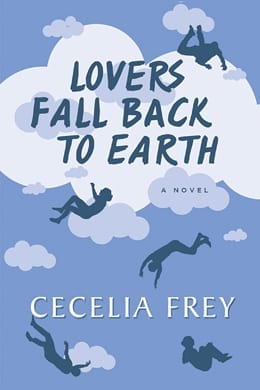

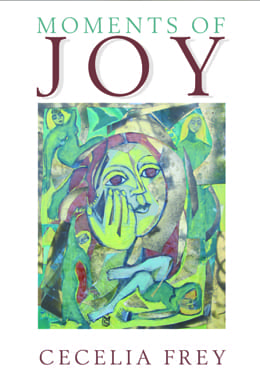
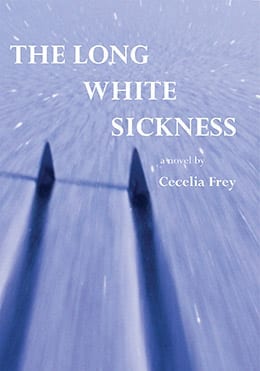
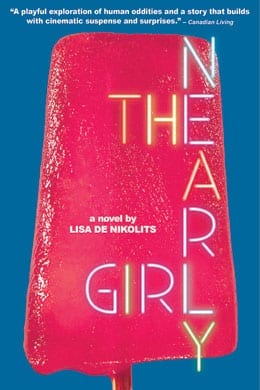
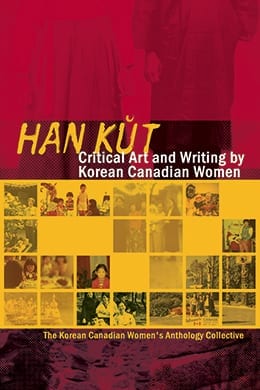
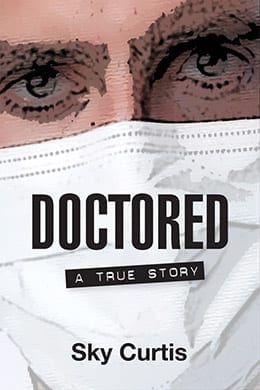
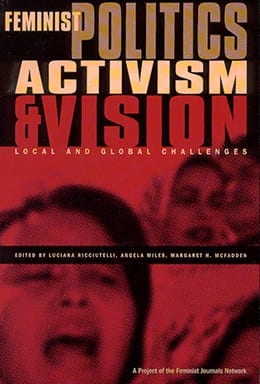
Inanna Admin –
Lovers Fall Back to Earth by Cecelia Frey
reviewed by The Minerva Reader – November 28, 2018
https://www.theminervareader.com/library-2018
LOVERS FALL BACK TO EARTH A hilarious misconception of youth is that life gets increasingly simple as you age. There is the assumption that the actions of your past and present will slip into interlocking puzzle-piece perfection and you will effortlessly canoe across the mirrored calm of a still lake, with the trees backlit on a sunny afternoon and the birds singing a happy chorus.
Or you believe I’ll be old, I won’t care and even if I do, it won’t matter. You think that your hopes and dreams and desires will become as politely as invisible as you imagine you yourself will feel and your reward for getting old will be a life of untangled placid yet satisfying adventure.
Nothing could be further from the truth. Life is the same tangled mess as it ever was and not only that but you’re dragging your unwieldy past behind you, like a tired Santa leaving a Goodwill, hoping to convince the crowds that his gifts are the shiny new real deal and not the dented and chipped relics from a bygone era.
And this is where the power and strength and beauty of Cecilia Frey’s writing lies. Frey takes youthful assumptions, the relentless passing of time, the pervasive culture that surrounded one during those formative years and she adds to it the complicated plots and subplots of siblingness and the result is an extremely well-crafted, fine tale.
The writing itself is inspiring. I’ve read a number of books lately in which POV is switched back and forth and Frey uses this in Lovers Fall Back to Earth and proves herself the master. It’s as if you slip inside the skin of each character and feel how their bodies move, where it aches and what brings pleasure. You feel the switchblade of conflicted emotions and the resolve thereof.
Ultimately, this is a hopeful, feel-good book. Santa doesn’t get mowed down by the avalanche of his weighty load. He (or she!) makes peace with the past – even when that means not making peace with it – and moves on, with a flowered pedicure and a fantastic glass of wine! And if this sounds cryptic, well, you’ll have to read the book!
Inanna Admin –
Lovers Fall Back to Earth by Cecelia Frey
reviewed by Vivian Hansen
FreeFall Magazine – Fall 2019
https://freefallmagazine.ca/current-issue.html
This book is about unpacking clichés, all that has been hoarded over the years. Frey pries beneath the surface, holding a formidable dexterity with the light and dark features of story. Her characters surface as those who make you laugh, and those who tick you off.
Lovers Fall Back to Earth begins with a tragedy at the death of a beloved sister. We see how a small group of flower children – two remaining sisters and the men who married them – live beyond the tragedy. We get to know Esther and George, Helena and Benjamin, and Veronica, the marginalized mistress who demands centre stage. The book is studded with extensive dialogue that reveals surface tensions, as well as soul-searching prose that navigates deep questions. Sometimes I wanted more of one and less of the other, but Frey balances the variation. The characters achieve a sympathetic pose regardless of how they surface. Frey does not allow sympathy for long, nor does she allow us to sit with judgement.
As George begins his affair with Veronica, he contemplates the headiness, at which time he becomes Everyman:
He could not believe it, those first days, weeks, months. Lazarus raised from the dead. That was the simple truth of it. He did not intend to deceive Esther. But what could a man do who had been dead and then given a second chance at life? It was a miracle. Veronica was a miracle. He
was grateful. To Veronica. To life. He had not expected this. (109-110)
When Veronica informs George that she is pregnant, his privileged existence gets challenged, and he fires the vitriol of cliché against the women he has impregnated:
It took George’s mind a moment to make the turn. It was as though she had spoken in a foreign language that his brain had to translate word by word, then form the disparate words into a comprehensible whole. But what she was saying was not possible.
“This isn’t possible,” he said.
“You’ve been taking the pill.”
“I know. I don’t know what happened. They say, the doctor said, that every once in a while it happens.”
“You must have missed a day.”
“No.”
“You’re lying. You’re not pregnant. You’re saying this to get me to stay.”
“In the first place, unlike you, I don’t tell lies. In the sec. In the second place, I wouldn’t lower myself to that sort of subterfuge to get any man to stay. In the third place, I’ve been to a doctor. I’ve had the tests.”
“You’ve done this on purpose.” (113)
Veronica’s voice is typically co-opted by George’s reflections of himself. But isn’t that always the way with a man and his mistress? She yells a lot and threatens. It is Frey’s careful use of narration that allows us to arrive at a layered judgement of Veronica. Helena and Benjamin are also victims of the early tragedy; each has suffered a debilitating loss of innocence and purpose. As Helena grapples with destructive behaviours, she opens up to Ben, who becomes her Muse once again.
“I can’t make rational decisions about emotions the way you can. Anyway, it comes to me when I am asleep. I keep having a dream, where the accident happens over and over again. I don’t want to live if I keep having that dream. But I’m afraid to die because what if it’s true, what they told us in Sunday School, that there is life after death and if you’re bad you’ll be tortured in the fires of hell for eternity. For me that would be an endless eternity of having that dream…”
“Time is the enemy,” she said. “I don’t want time.”
“Time is your friend.” Benjamin spoke slowly, emphatically, in low even tones. He’s used to this, she thought, used to talking people into handing over the gun or the pills. (130-131)
Frey ushers all these characters into a healing place. She doesn’t flinch from narrational reflections that are ubiquitous, in Benjamin’s head:
How a person deals with pain is a defining factor. Some people fixed themselves at the cauterization stage, some dealt with pain with drink and drugs. Most of the street people did that. But that caused other problems to do with health and relationships. And the pain could come back, like the eruption of an illness lying dormant for a while before re-emerging with vengeance. Then there are those who fought like wildcats against pain, who would not let themselves be destroyed, who would use any means or any person available as an object to save their own egos. Veronica was like that. (139)
When Esther animates around her new life without George, she stretches toward her future.
She reached out her arm and opened the door to a smiling man, not too tall, sturdy but trim, with greying hair and laughing eyes, who held flowers in one hand and a bottle of wine in the other.(245)
Conclusions are wrapped up, but not too early. To do so, Frey would have had to comply with collateral damage in victimization. George is left to natural consequences. The women seem to win and those who do right by them can live to see another day of contentment, if not total happiness.